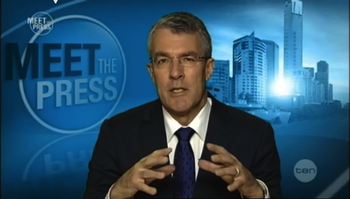 Boston could have been spared a lot of grief last week if Americans had just paid more attention to football — at least if the wisdom of attorney-general Mark Dreyfus here in sports-loving Australia means anything.
Boston could have been spared a lot of grief last week if Americans had just paid more attention to football — at least if the wisdom of attorney-general Mark Dreyfus here in sports-loving Australia means anything.
Here’s what Dreyfus (pictured) said on Channel TEN’s Meet the Press on Sunday, part of an interview which pondered whether the Boston bombing was a “wake-up call” for Australia:
[T]his goes to your question about what is sometimes referred to as lone-wolf, or people who are disconnected from any organised group — we’ve got a very large program that’s directed at countering violent extremism.
And that’s about working with communities. That’s about working with community leaders; it’s about getting young men out on the sporting field, getting them out playing soccer, playing footy, playing rugby, because that’s where we want them — not sitting at computer screens looking at videos about jihad.
None of this faggoty basketball or tennis for Freedom, no Sir! It’s all proper, manly and not-at-all-homoerotic football!
What about swimming, one of Australia’s most successful sports? No, that’s obviously out because beards and turbans and water resistance. And rowing? Hell no! They had a boat in Boston, and you saw what happened!
Sigh. Is this 1954 again?
“Sitting at computer screens” — always portrayed as a passive, dull-minded activity because, presumably, politicians never use their own computers for creating or interacting, so they never see them as anything more than TVs with dangly bits — versus the traditional, healthy outdoor and above all Australian pastime of blokes group-kicking an inflated pig.
Do politicians not understand that for a significant proportion of us, the mere idea of government-encouraged team sportsball with a bunch of boofheads makes it more likely that we’ll wash the curry out of the pressure cooker and fill it with nails?
Do politicians not understand that if young Mohammed has an interest in physics and chemistry, and is used to researching stuff on the internet, that he might have the potential to be a useful part of — oh, what’s that phrase again? — oh yeah, the “digital economy”, rather than being just another suburban also-ran with his nose shoved up some hairy bloke’s arse in a scrum?
Maybe he could even become part of this cyber thing we keep hearing about — the good part, not the part involving kindergarten kids and trousers around the ankles.
Deep breath.
I’m sure — or at least I’m hoping — that our nation’s programs to deal with violent extremism are just a tad more sophisticated that the Attorney-General makes out. He’s new in the job, and maybe he hasn’t been properly briefed yet. I might ask around. If it’s OK with you, Attorney-General, I might sit in front of a computer screen while doing that.
But I’d have thought that when you’re reassuring the public after a high-profile terrorism incident overseas that your message could be a bit better crafted than “Yeah, we’ll get ’em playing footy, that’ll sort ’em out.”
And before you ask, girls don’t do terrorism. What even are you thinking?

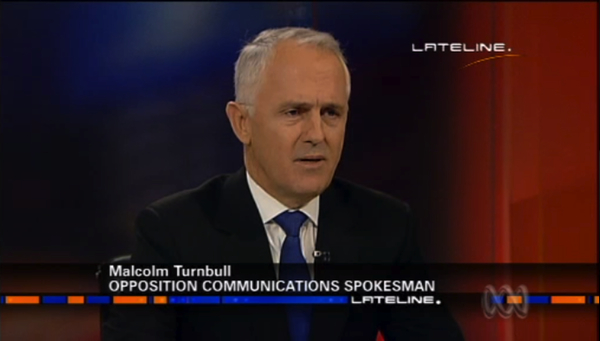
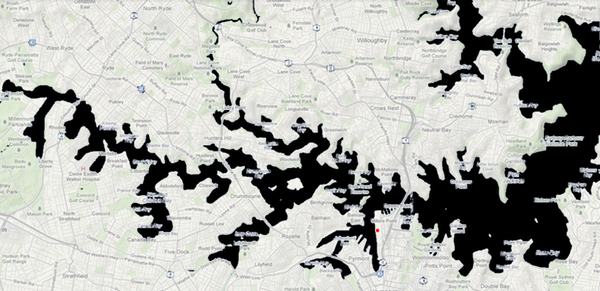
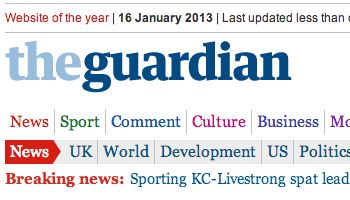
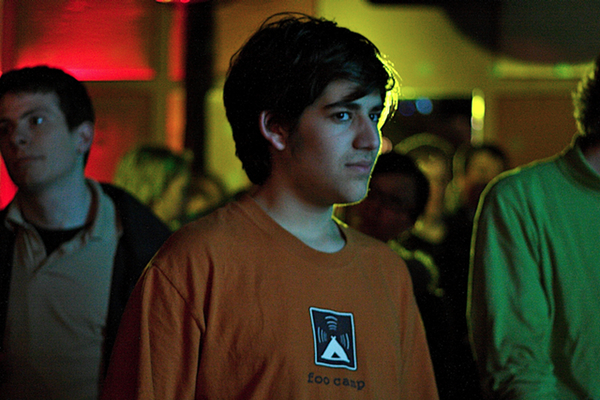
 “It really does seem that it’s now that time of the year on Twitter when I could admit to raping a nun no one would notice,”
“It really does seem that it’s now that time of the year on Twitter when I could admit to raping a nun no one would notice,”